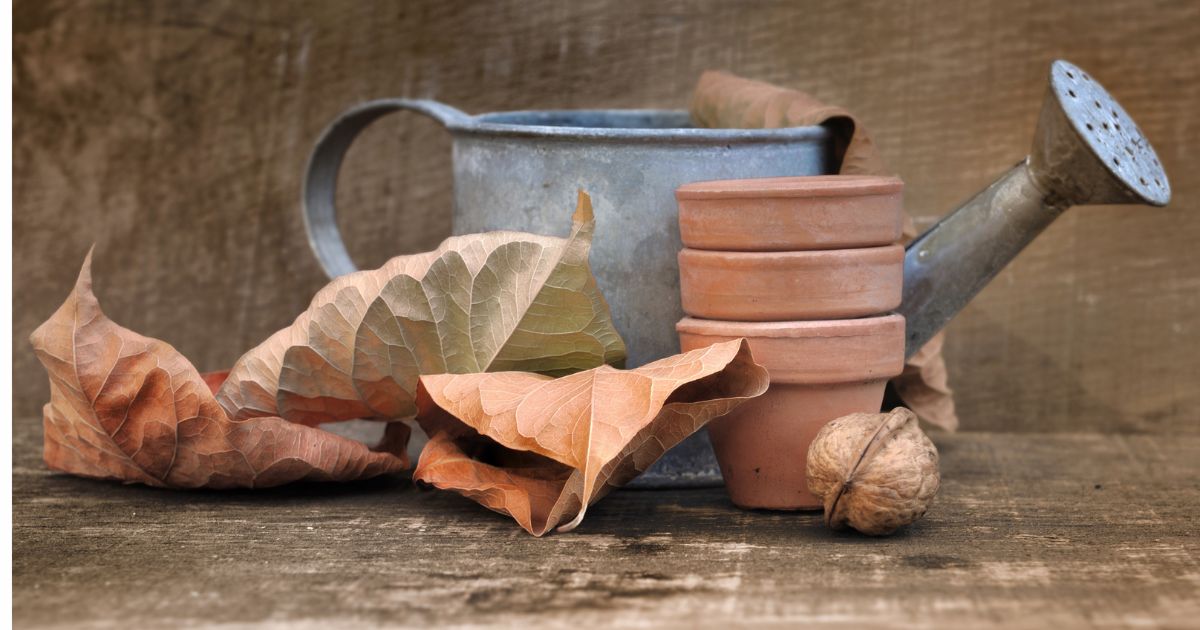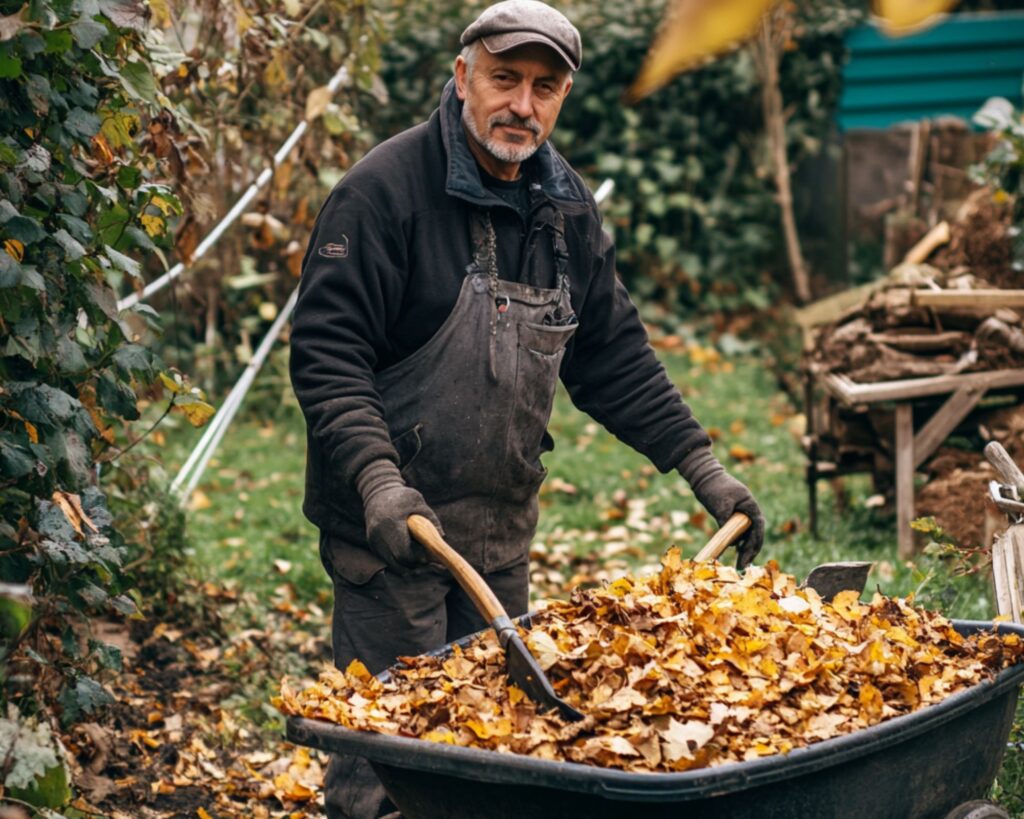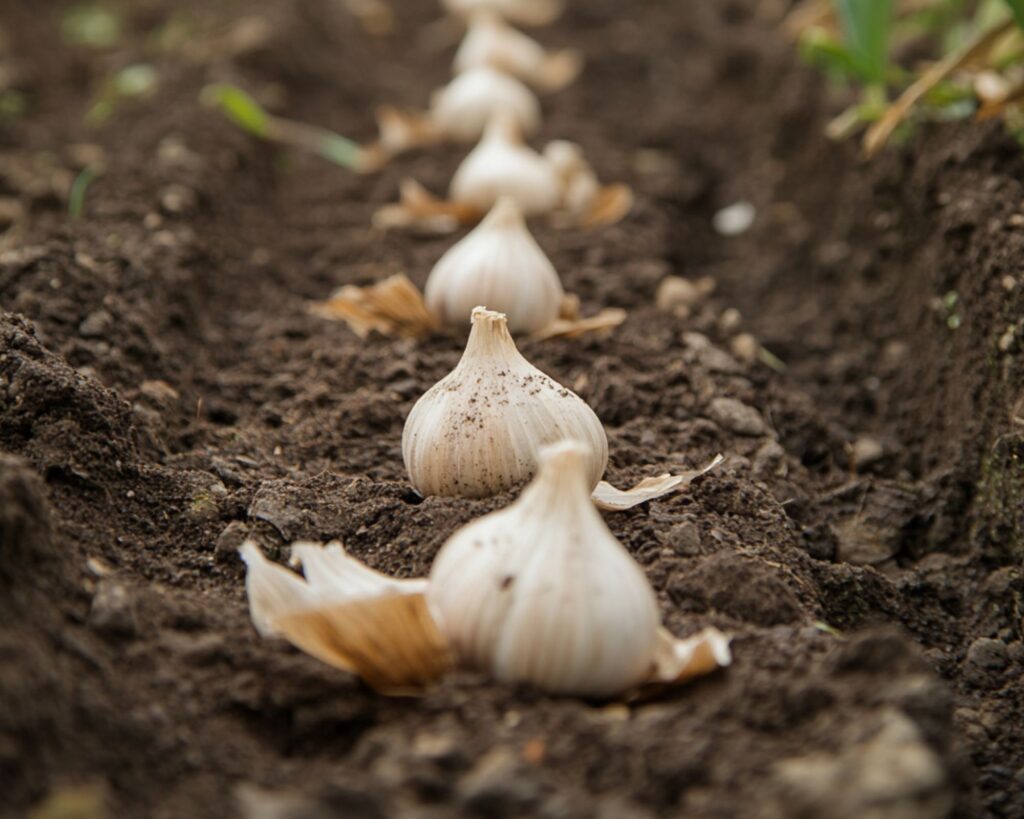November is a crucial month for preparing your allotment for the colder months ahead.
It’s the perfect time to tidy up, plant hardy crops, and ensure everything is set for a productive spring.
In this blog post, we’ll explore nine essential jobs you should consider tackling in your allotment this November, ensuring a thriving garden come springtime.
1. Tidy Up the Allotment
As the growing season comes to an end, it’s time to tidy up your allotment.
Remove dead plant matter, fallen leaves, and any debris.
This not only makes your plot look neat but also helps prevent pests and diseases from overwintering.
2. Plant Garlic
November is the ideal time to plant garlic.
Choose a sunny spot with well-drained soil.
Plant the cloves about an inch deep and four inches apart.
They’ll establish roots over winter, ready for a bumper harvest in summer.
3. Mulch the Beds
Applying a layer of mulch over your beds helps protect the soil from erosion and retains moisture.
Use organic matter like leaf mold, compost, or well-rotted manure.
This will also add nutrients to the soil as it breaks down.
4. Harvest Winter Vegetables
If you’ve planted winter-hardy vegetables like leeks, kale, or Brussels sprouts, now is the time to harvest them.
These vegetables are at their best after the first frost, which sweetens them and enhances their flavors.
5. Repair and Maintain Tools
With less work to do on the plot, use this time to maintain your tools.
Clean, sharpen, and oil them to ensure they’re in good condition for spring.
Well-maintained tools last longer and make gardening tasks easier.
6. Plant Broad Beans
Planting broad beans in November gives them a head start.
They’ll establish over winter and produce an early crop in spring.
Sow the seeds directly into the soil, about two inches deep and eight inches apart.
7. Check Compost Piles
Turn your compost pile in November to aerate it and speed up the decomposition process.
Ensure it’s not too wet or dry, and add a mix of green and brown materials if needed.
A healthy compost pile is a gardener’s best asset.
8. Protect Tender Plants
With frost becoming more frequent, it’s essential to protect tender plants.
Use horticultural fleece, cloches, or cold frames to shield them from the cold.
This can extend the growing season and prevent damage.
9. Plan Next Year’s Crops
Use the quieter winter months to plan next year’s crops.
Consider crop rotation to prevent soil nutrient depletion and pest build-up.
Sketch out your plot and decide what to grow where, ensuring a bountiful harvest.









